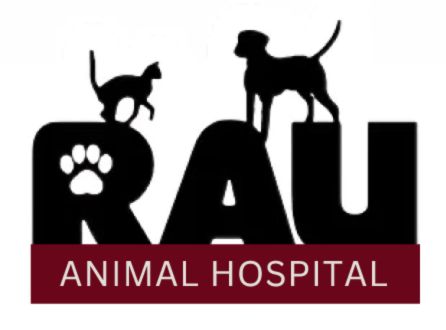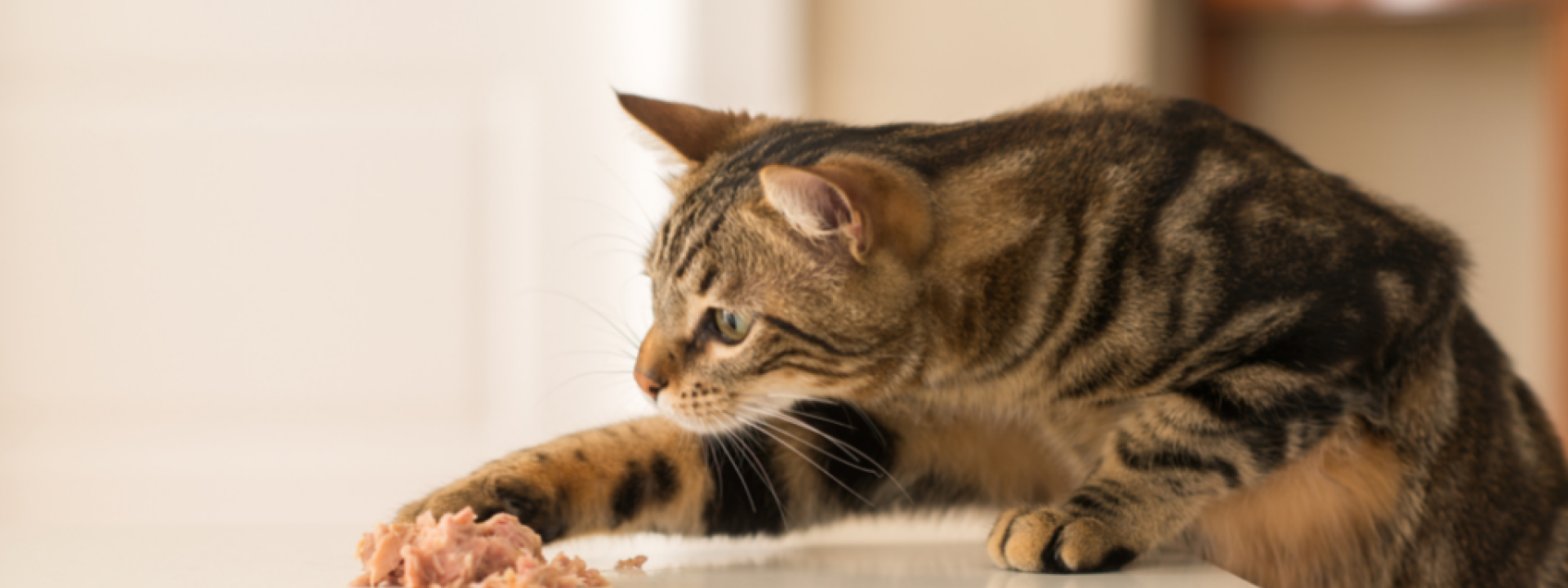As a cat owner, you know your feline friend needs a steady supply of protein, fat, vitamins, and minerals to stay healthy. Feeding them high-quality commercial cat food — in both dry and wet varieties — is the best way to meet your cat's nutritional needs, but did you know that certain human foods are safe for cats, too? While your finicky feline may not be as willing to chow down on unusual foods as a dog would be, they may enjoy things like fresh fish and meat. And foods like pumpkin could even help with hairballs and constipation.
Keeping your cat on a well-balanced diet is crucial to maintaining their overall health. As veterinarians, we are here to provide nutritional counseling if you ever need help determining what and how much to feed your feline friend. In this blog post, we will be discussing some surprising foods that are safe (and healthy!) to share with your cat. Let’s get to it!
Fresh Fish
When you want to give your cat a tasty and nutritious snack, you can’t beat fresh fish! In addition to tantalizing your feline friend’s taste buds, fish is loaded with omega-3 fatty acids that improve skin and coat health. Occasionally treating your cat to fish is good for their brain, joints, and eyes, too.
The best types of fish to share with your cat include:
- Tuna
- Mackerel
- Salmon
- Shellfish
Cook fish before offering it to your cat, and be mindful only to offer seafood as an occasional treat. Overdoing it can lead to vitamin E deficiencies. Some types of fish also contain high levels of mercury, which contributes to serious health problems when humans or pets consume this in large quantities.
Lean Meat
As obligate carnivores, cats need meat in their diet. Buying cat food containing meat is a must, but it never hurts to treat your cat to a tender morsel of chicken, beef, or turkey once in a while, too. Raw diets are trending, but we recommended cooking meat before feeding it to your cat. Cooking eliminates pathogens like E. coli and Salmonella and makes feeding your cat real meat less risky. Make sure there aren’t any bones, too!
Eggs
Many cats enjoy eggs, and they are a great source of protein and many other nutrients.
Eggs are packed with nutrients, including:
- Animal protein
- Amino acids
- Biotin
- Taurine
- Vitamins A, D, E, and B12
- Thiamine
- Iron
- Riboflavin
- Zinc
- Selenium
Scrambled and boiled eggs are both excellent options. They’re also carbohydrate-free, making them a pure protein source. Like meat, though, eggs can carry Salmonella and E.Coli, so cooking is a must. Just don’t use oil or butter when cooking, as many cats are sensitive to dairy products.
Pumpkin
Pureed pumpkin (not pumpkin pie mix!) is packed with fiber and nutrients that are great for your cat’s health. Fiber is well-known for aiding in weight control, and it can prevent hairballs and soothe both constipation and diarrhea in your feline friend. Plus, canned pumpkin is rich in moisture and can help your cat stay hydrated.
Unfortunately, cats aren’t as drawn to canned pumpkin as we humans are to pumpkin pie and pumpkin spice lattes! Try mixing ½ teaspoon to 1 teaspoon of pumpkin into your cat’s food daily to let them experience the benefits of this nutritious fall favorite.
Rice
While not a necessary component of a cat’s diet, rice is a healthy grain that many cats enjoy. It is easy to digest and makes a soothing meal for an upset stomach when combined with lean meat. When adding rice to your cat’s diet, use plain cooked white or brown rice. Avoid feeding too much, too, as excessive carbohydrates are not good for your furry friend and can cause obesity.
Yogurt
Many cats become lactose intolerant as they get older, making most dairy products risky. Yogurt, however, is a safe bet. Unlike other dairy products, the lactose in yogurt is already broken down. This makes it easier for cats to digest even if they can’t handle milk, butter, or other dairy products.
Yogurt is full of calcium, protein, and probiotics that are great for cats’ health. Just remember to give your cat small amounts of plain, whole milk yogurt that does not contain sweeteners or vanilla.
Foods to Avoid Feeding Your Cat
We’ve covered some human foods your cat can eat. Now let’s take a look at some human foods that cats shouldn't eat. Some of the items on this list are toxic, while others aren’t good for your cat’s overall health.
Foods cats can’t eat include:
- Alcohol
- Caffeine
- Raw bread dough
- Chocolate
- Cooked or raw bones
- Raw meat/fish/eggs
- Dog food
- Garlic/chives/onions
- Milk
- Fat trimmings
- Raisins/grapes
- Coconut milk
- Mushrooms
- Nuts/seeds
- Xylitol
In addition, you should never give your cat medications intended for humans or other animals.
Closing Thoughts
Your cat’s regular food is the best thing to feed them and should make up the majority of their diet. There is no harm, though, in treating your feline friend to the safe foods listed above once in a while. If you’re having a hard time understanding your cat’s nutritional needs, we’d love to help. Please reach out to us to schedule an appointment.

